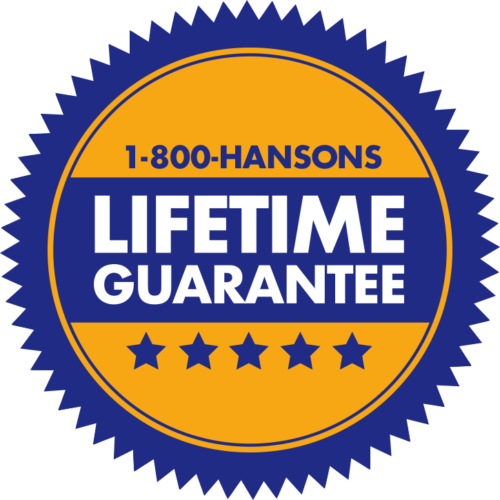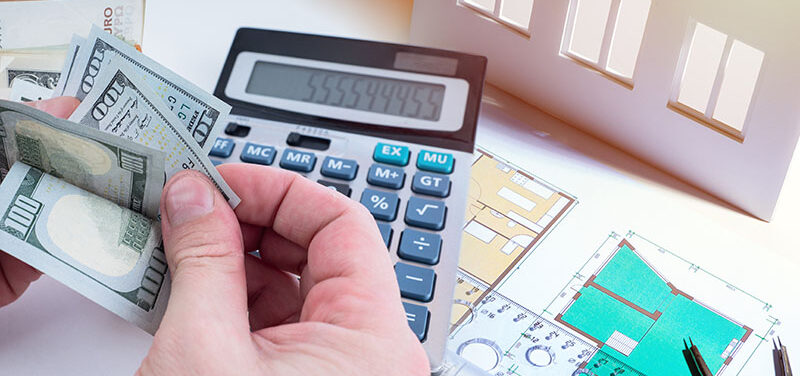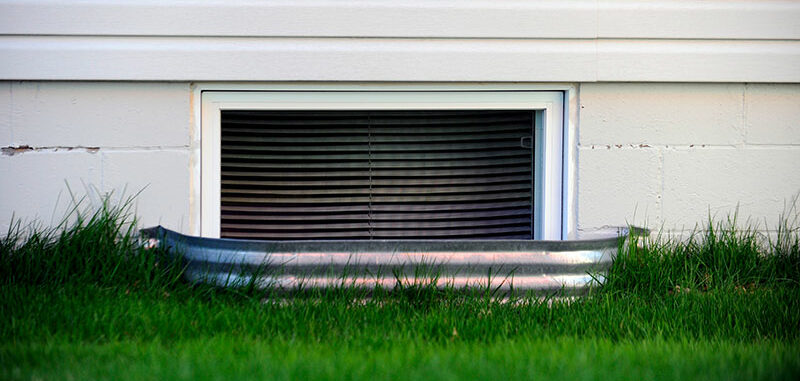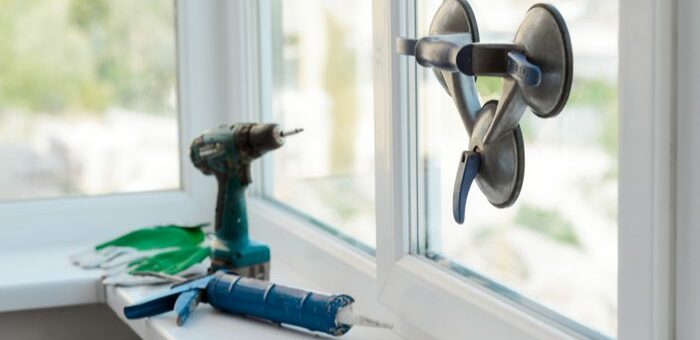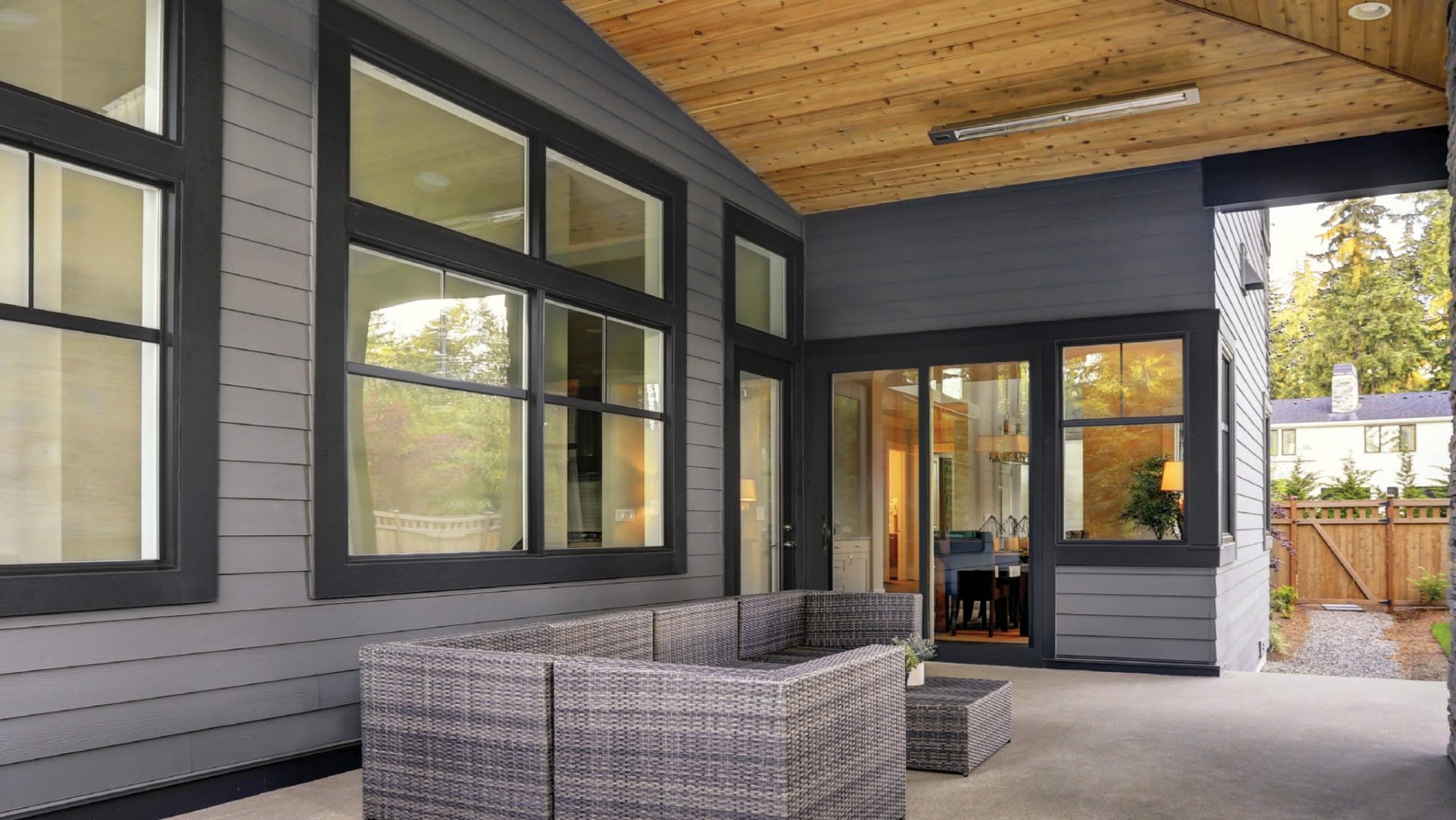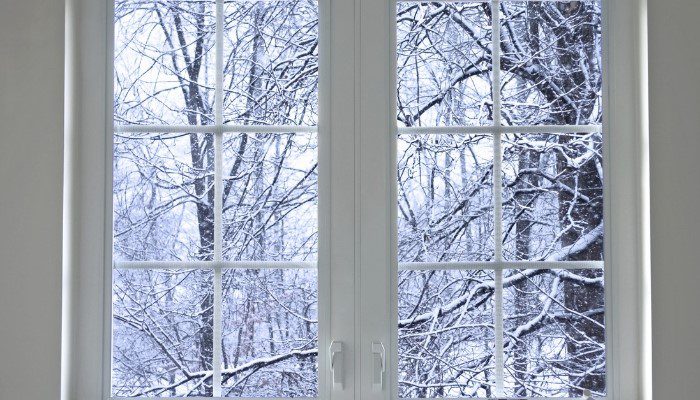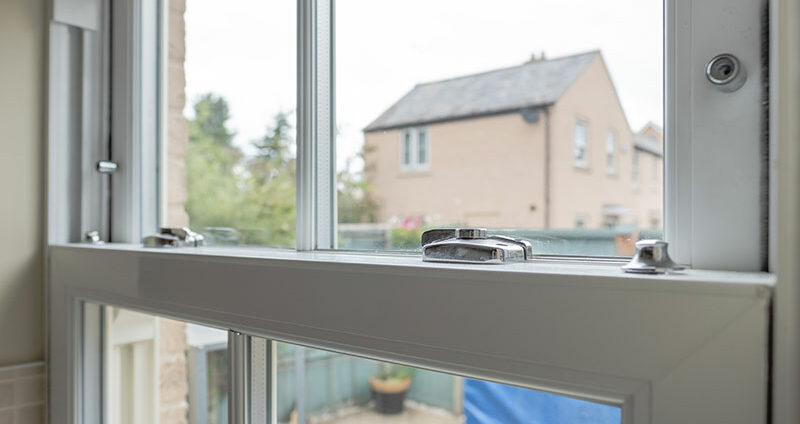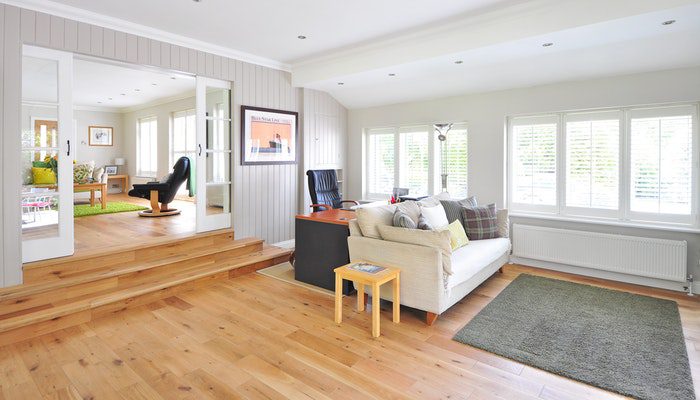
Types of Window Frames
When looking for types of replacement window frames, five types are worth investing in wood, vinyl, aluminum, fiberglass, and composite.
50% off installation
Special financing available. See details
The quality of your window frames will determine how long your windows’ structure will be able to withstand the wear and tear of time. Some types of window frames will last for decades, whereas some will start to fall apart in just a few years.
With most window frames claiming durability, low maintenance, and energy efficiency, factors such as climate change and overall appearance must also be considered. Let’s take a look at the most common types of window frame materials.
Wooden Window Frames
Wooden window frames have been used for more than a hundred years and until now, their aesthetic appeal still has not lost its touch. Known for their durability and easy to maintain, repair, and replacement features.
Wood is an excellent insulator, which is one reason these kinds of frames have been favored by homeowners. With the proper moisture treatments and finishes, wood will not expand and contract. It can last a decade before it will need sanding and a fresh coat of paint to make it look brand new again.
When choosing the right kind of wood for your windows, you have several options. There’s pine, redwood, Accoya, idigbo, oak, and Sapele wood choices. They can be purchased pre-primed, which will save you a lot of time during installation. Wooden window frames can be a quite expensive.
Vinyl Window Frames
Vinyl window frames are made from a polyvinyl chloride material, also known as PVC. These types of frames are not only affordable, but also highly durable. Vinyl frames are mostly known for their durability and affordability compared to wooden and aluminum frames.
Vinyl window frames will not bend, peel, crack or warp and can withstand direct sunlight. Vinyl is also popular due to its versatility. It can mimic any style you are looking for and even create designs unique to your preference.
Because of their hollow pockets, vinyl frames can provide additional needed insulation, which can even lower your energy costs.

Aluminum Window Frames
Requiring less maintenance than wood, aluminum windows are easy to maintain. Aluminum frames will not rust, do not shrink, and are weather-proof (with the exception of sea air).
They are less expensive than wooden frames but are more costly than vinyl. They are not ideal for colder regions and are not efficient if intended for insulation purposes. Aluminum doesn’t hold in heat as well as other materials.
But if aluminum frames are a must for your home, consider adding thermal breaks to your aluminum windows. These are resins and insulators inserted inside the aluminum frames’ hollow parts where heat would generally travel through.
Fiberglass Window Frames
Between the wood, vinyl, and aluminum window frames, fiberglass is the most durable. Its durability comes from the glass fibers inserted to ensure maximum strength, enabling it to support more oversized windows.
Unlike the other materials available for window frames, they are not easily scratched or damaged and resist denting. However they can fade in sunlight.
Their excellent ability to tolerate the extremities of cold and heat conditions allows them to be highly energy efficient. These types of frames have excellent sound-resistant capabilities.
Fiberglass window frames are more expensive than wood and vinyl. They may have fewer options in the color department than wood as well.
Composite or Clad Wood Window Frames
Composite window frames are also referred to as clad wood frames. They are a combination of two materials; wood, aluminum, vinyl, or fiberglass. These combinations make them great options for those looking for a more affordable option.
They are mostly considered by homeowners that want to maintain the look of wood on their window frames while incorporating vinyl, fiberglass, or aluminum materials for added durability.
Composite frames are more resistant to humidity and condensation buildup caused by moisture. They can tolerate extreme weather conditions, especially in homes facing the coasts.
Aluminum-clad Wood Frames
The wood and aluminum combination or aluminum-clad wood frames are lighter in weight than the other window frames. The only downside is that aluminum is also known as a conductor of heat. Without proper ventilation in your home, you will encounter window glass condensation with aluminum frames.
Wood and Vinyl Composite Windows
Vinyl clad wood frames are also energy efficient like the wood and aluminum combination frames. They are, however, not as strong and may experience contraction and expansion. Most factories will offer vinyl that resists fading, peeling, and warping. You can also paint the vinyl, but it is advisable to ask your contractors if that might affect its warranty.
Fiberglass Clad Wood Frames
These frames offer more superiority, longevity, and longer-term stability over the others. With strong resistance to expansion and contraction, they allow the windows to be tightly secured, allowing less air to seep out or come in.
The Importance of Proper Frame Installation
When replacing window frames, the most crucial factor is the actual installation. If an installation is done wrong or by unqualified experts, it can lessen the window frames’ effectiveness and efficiency regardless of the material used.
Make sure that the entire process of replacement from start to finish is done correctly. If not, you may end up spending more money on re-installations than a simple replacement.
Need more information about replacement window frames or are you thinking about a replacement window project? Feel free to contact 1-800-HANSONS for a free estimate today.
Related Window Information:
Types of window glass
Window maintenance
How to replace and install windows
Why 1-800-HANSONS?



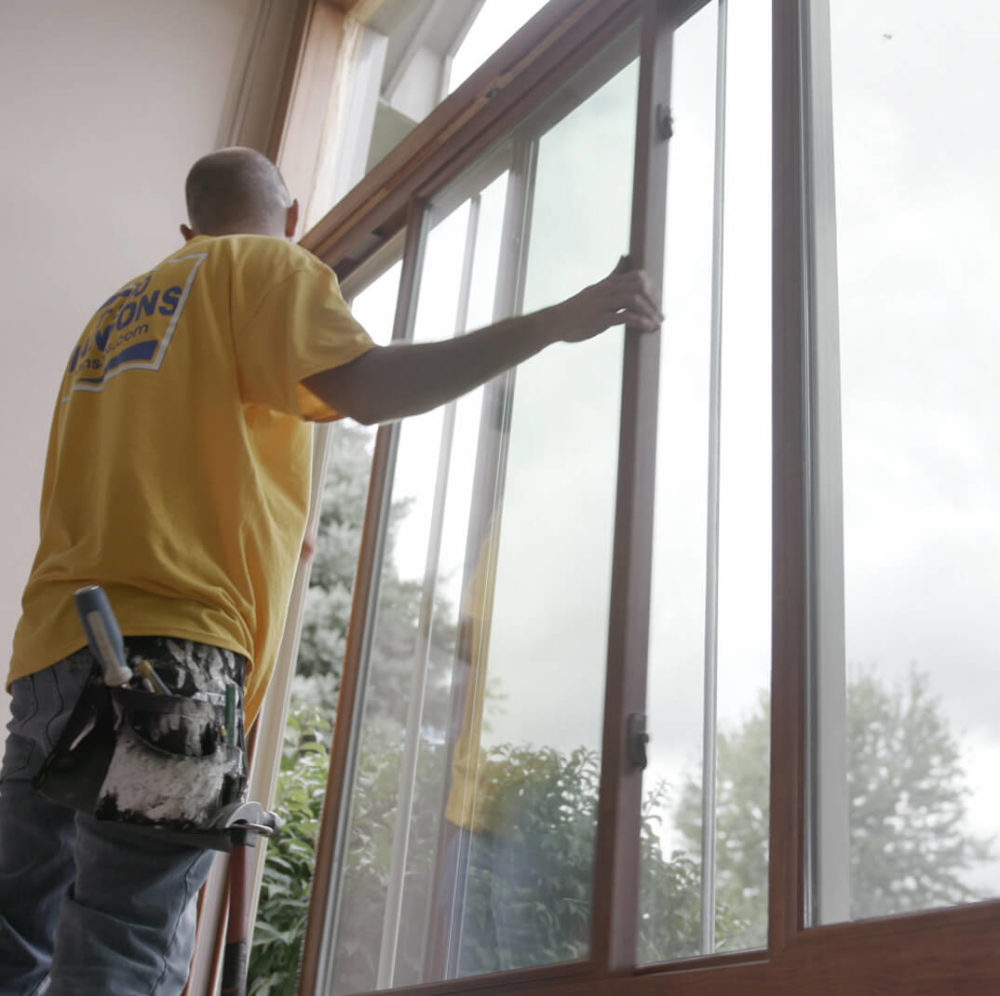
Ready to get started?
We’re ready to help transform your home with durable, energy-efficient products that can help protect your home, improve your comfort and save you money.
Our consultation includes:
- Inspecting your home and gathering precise measurements
- Displaying our best-in-class products and design options for you to choose from
- Providing an immediate estimate and finance options to fit your budget

Enter today for a chance to win a $50,000 home exterior makeover!
50% off installation. Special financing available.
Labor Only. Roofing and siding priced by the square. Not combinable with other offers/promotions. Offer may be withdrawn without notice. Prior sales excluded. Must purchase by 7/7/24 to qualify for special offer. Lifetime Guarantee is for roofing, siding, windows and gutters. Bathtubs and showers offer a no-leak guarantee. Other restrictions may apply.
Interest is billed during promo period but will be waived if the amount financed is paid in full before promo period expires. *Plan 2521. Subject to credit approval. Rates range from 15.85% – 21.19% APR (interest rates range from 17.99% – 24.99%). Loan amount and rate will vary based on your income and creditworthiness. 12 month promotional period (“Promo Period”) during which interest is billed but will be waived if the amount financed is paid in full before Promo Period expires. Monthly payments are not required during the Promo Period. Any unpaid balance and amounts owed after Promo Period will be paid over 84 monthly payments. For example, assuming the full credit limit is used on loan approval date and no payments are made during Promo Period, for every $1,000 financed at a fixed interest rate of 24.99%, 12 monthly payments of $0 followed by 84 monthly payments of $28.29. This example is an estimate only. Actual payment amounts based on amount and timing of purchases. Call 866-936-0602 for financing costs and terms. Loans for the GreenSky® consumer loan program are provided by Synovus Bank, Member FDIC, NMLS #408043, without regard to age, race, color, religion, national origin, gender, disability, or familial status. GreenSky Servicing, LLC services the loans on behalf of your lender, NMLS #1416362. www.nmlsconsumeraccess.org. GreenSky® is a registered trademark of GreenSky, LLC and is licensed to banks and other financial institutions for their use in connection with that consumer loan program. GreenSky Servicing, LLC is a financial technology company that manages the GreenSky® consumer loan program by providing origination and servicing support to banks and other financial institutions that make or hold program loans. GreenSky, LLC and GreenSky Servicing, LLC are not lenders. All credit decisions and loan terms are determined by program lenders.

